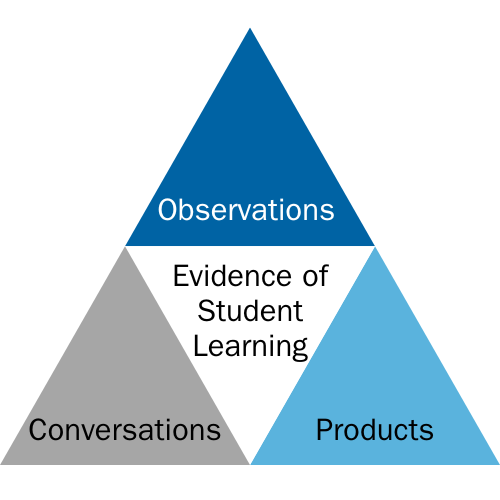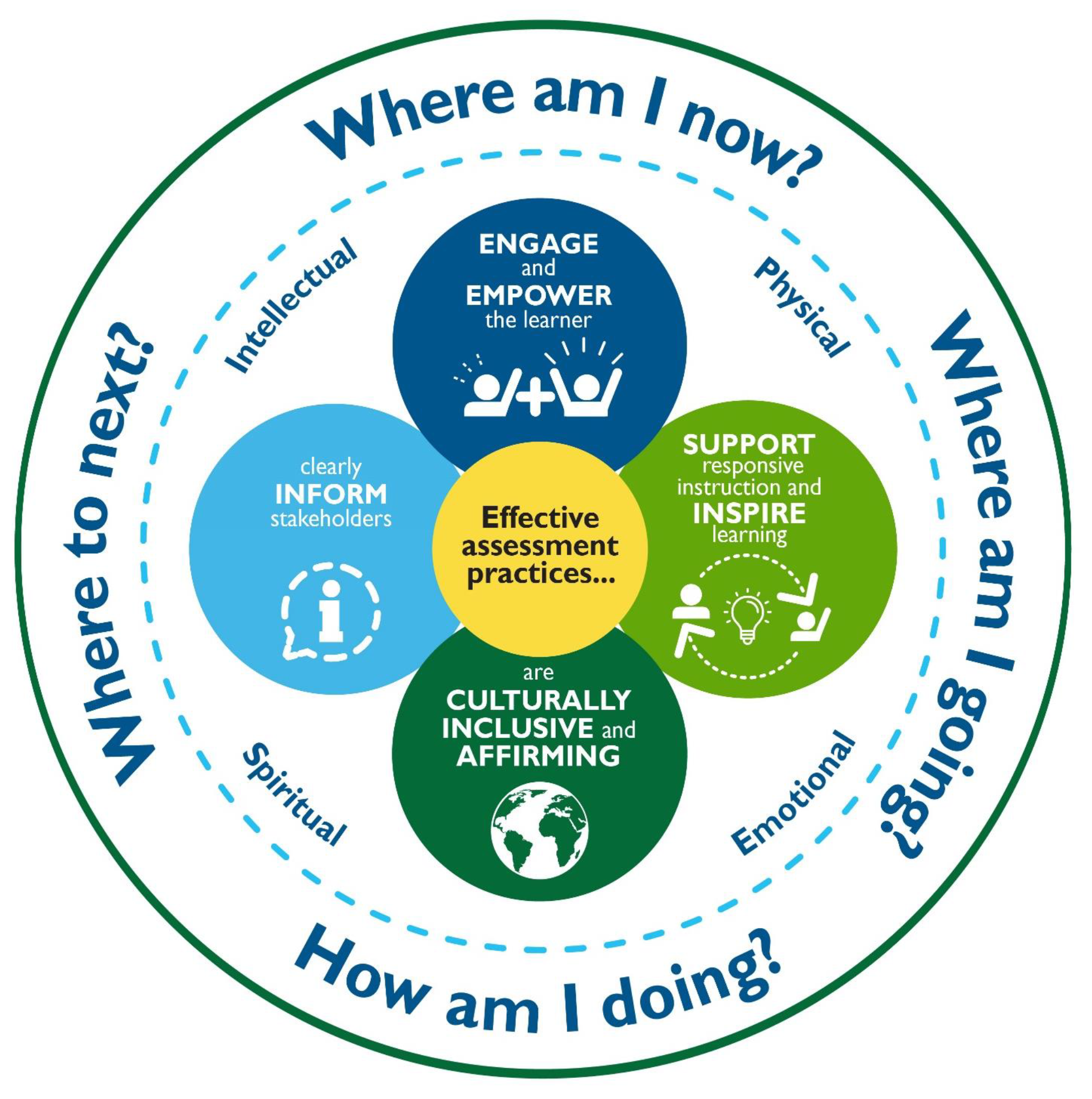Parent/Caregiver
Guide to Assessment & Reporting
In Northwest School Division, we support every student in becoming a lifelong learner, curious about their world, observant, collaborative, and able to both reflect on their strengths and set goals for improvement. This belief, at the heart of our mission statement “Laying the Foundation for Success… One Student at a Time,” is fundamental to everything we do. Assessment and Reporting are fundamental to making this goal a reality.
What is assessment?
Assessment is the act of gathering evidence of learning in an ongoing basis in order to understand and inform future actions to support further learning—Supporting Student Assessment in Saskatchewan, pg 8.
There are three key functions of assessment:
- Assessment for learning: monitoring students’ learning and providing feedback
- Assessment as learning: helping students understand their current learning and set goals
- Assessment of learning: determine the final mark that best fits the student’s achievement
Determining Student Achievement
In order to determine students’ grades or marks, teachers use their professional judgment and consider factors such as consistency, recent improvement and quality of evidence. Teachers and students work together to gather evidence of their learning over time from observations, conversations and student work. Teachers then look at the most recent and most consistent level of achievement or performance as measured against the curriculum outcomes to determine where students are in their learning.
Assessment in NWSD
Assessment for Learning (Monitoring)
Assessment for Learning, or Formative Assessment, is the active monitoring of student learning during the learning process. Assessment for Learning can be formal—like a diagnostic screening tool or quiz—or informal, like a quick one-on-one conversation.
Assessment for Learning helps students and teachers:
- identify what is and what is not in the learning process
- understand misunderstands and other barriers
- clarify next steps
- know what skills they need to practice
- make timely adjustments to the learning process
Assessment as Learning (Reflecting)
Assessment as Learning, often known as reflection or self-assessment, is the process where students analyze their own learning critically, identify strengths and next steps, and develop realistic plans to improve.
In the short term, Assessment as Learning helps students to:
- understand what they need to do to improve in a particular course or curriculum outcome
- set goals to improve their achievement
- in the long term, Assessment as Learning helps students to:
- develop a growth mindset
- develop the habits of a lifelong learner
Assessment of Learning (Marking)
Assessment of Learning, or Evaluation, is the process of determining a final mark. By carefully considering diverse evidence, including observations, conversations, and products, teachers make a professional judgment about a student's achievement in each outcome and assign the mark that best describes their achievement.
Assessment of Learning helps both students and their parents/guardians by providing:
- a measure of accountability
- a target for goal setting
- an opportunity for final feedback.
Four Guiding Principles of Effective Assessment:
- Engage and empower the learner
- Support responsive instruction and inspire learning
- Be culturally inclusive and affirming
- Clearly inform students and parents/caregivers
Four Guiding Questions for Assessment
Where am I now? Where are we now? | Where am I going? Where are we going? |
How am I doing? How are we doing? | Where to next? |

